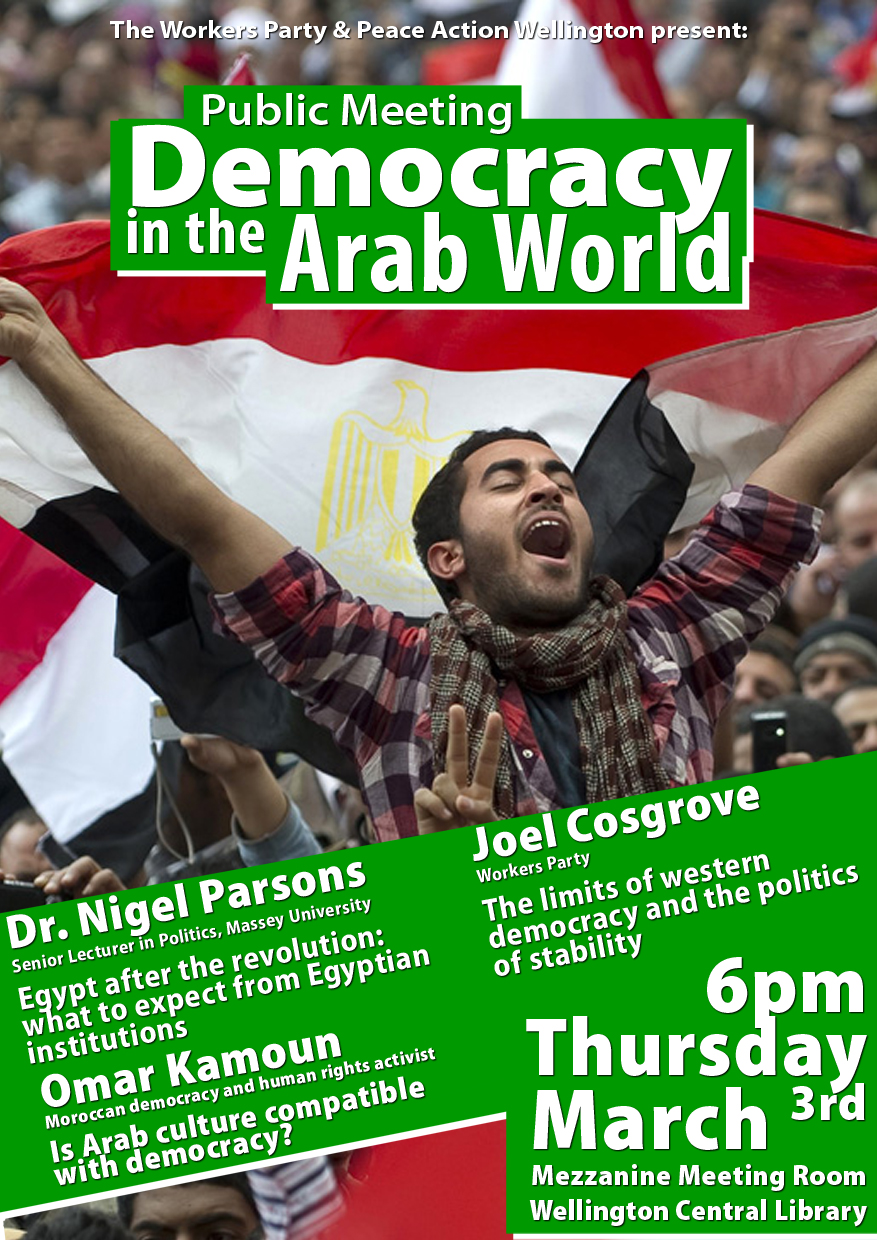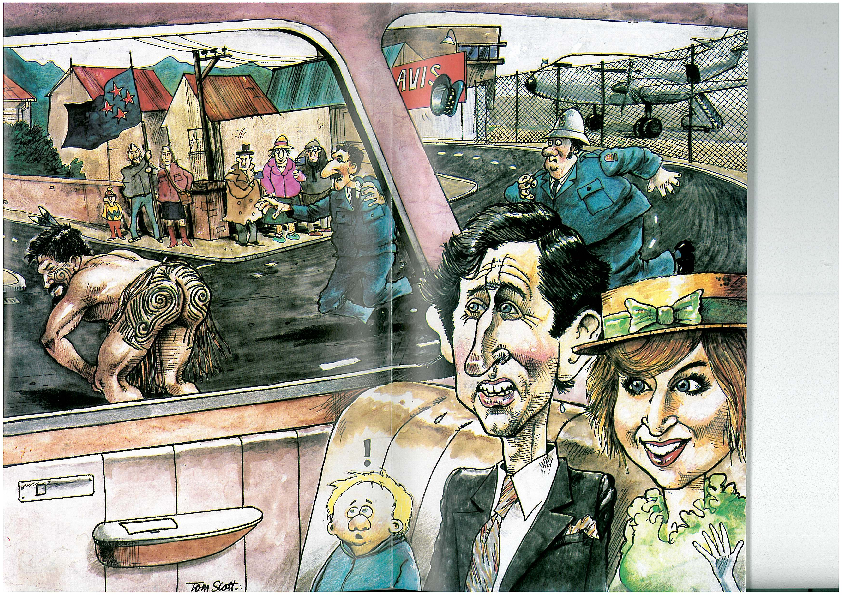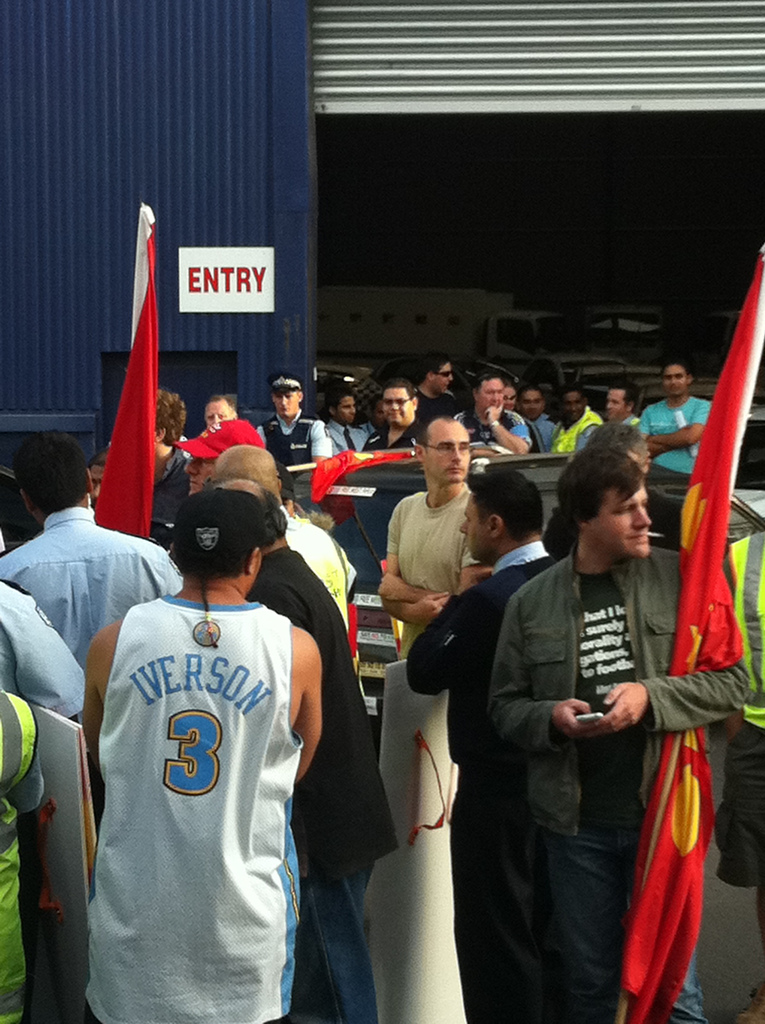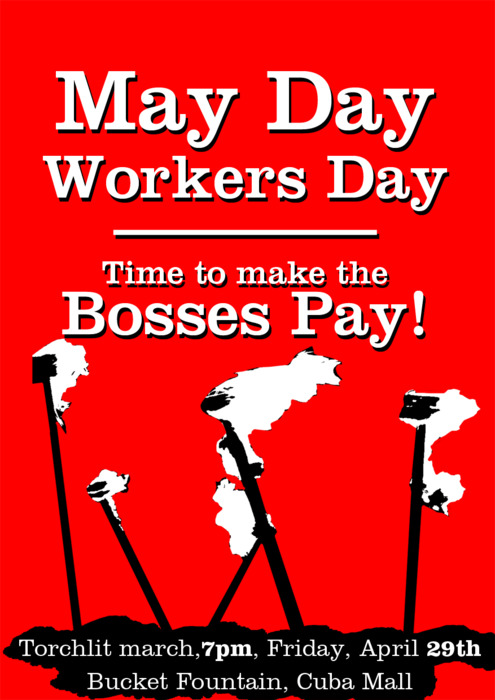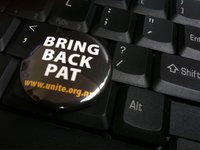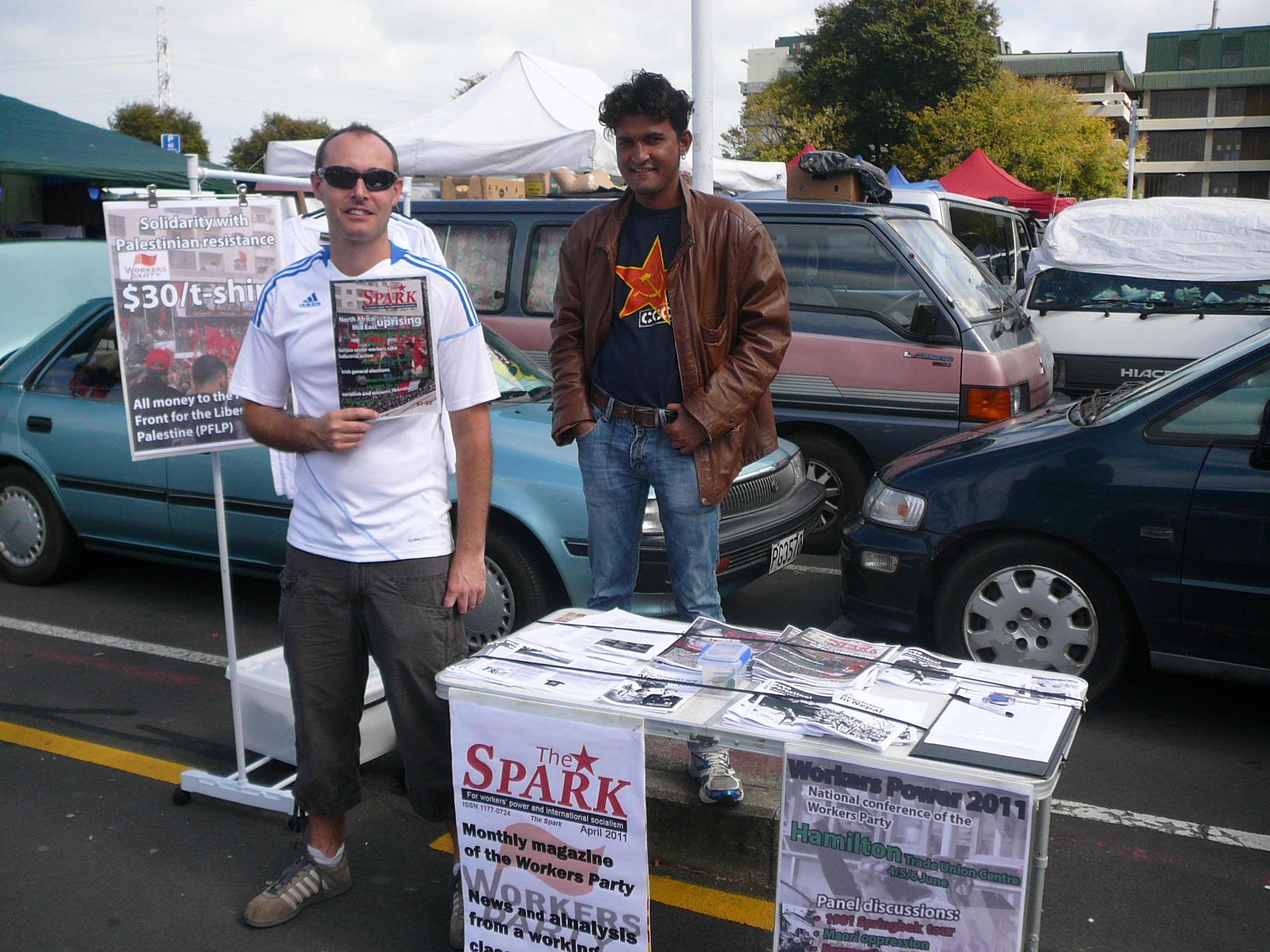
We are pleased that we can now continue to circulate the only far-left monthly magazine in New Zealand in an updated and attractive format. We intend to continue building circulation and developing a new subscription base amongst advanced elements of the working class and youth. You can read most articles online but subscribing to the paper allows for deeper reading, you get it every month, you can pass it on, and it’s a good way to further support the dissemination of Marxist ideas in New Zealand.
Included below are the editorials of the March and April 2011 issues along with the PDFs of the hard copies.
April 2011 Editorial and PDF
This issue begins with coverage of the Japan and Christchurch earthquakes. With regard to the very sad situation in Japan we put forward that capitalist social relations extenuate negative outcomes from natural disasters. In the March issue we published a bare facts analysis of the Christchurch earthquake, in this issue we are taking a more sociological look at some aspects of the recovery phase.
We are first-time publishing two articles on the upheaval in the Arab world, one is a major original article outlining the background to events written by John Edmundson, the other is a report on a public meeting on the issue, partially organised by Workers Party, which attracted 90 people.
Continuing from the March issue, this month’s issue of The Spark contains part two of three of a major piece on women’s liberation. Also continuing from last month is the second and final part of a new article reflecting on the 1951 waterfront lockout at its 60th anniversary. Margaret Jones, a subscriber to this magazine, sent us a photo of her father with waterfront workers leader Jock Barnes. Together they were standing by Margaret’s father’s truck which was loaded with a massive amount of food and supplies for the locked out workers. We think this may be the first time the photo has ever been published.
This year members of Unite Union have already been locked out at SkyCity Casino and at First Security. SFWU members were also amongst those locked out at the casino. That the bosses are locking-out in the service sector reveals the current level of confidence amongst employers. In both cases the lockouts were defeated by prompt and militant action. Please see this issue’s coverage of recent industrial disputes. As always, please consider subscribing and donating to The Spark. You can download the April issue of The Spark here April issue of The Spark
March 2011 Editorial and PDF
It’s only March and the year has already been defined politically both on the globe and in New Zealand. In North Africa we’ve witnessed massive uprisings of people standing up against undemocratic governments and against the agenda of major imperialist powers in the Middle East. In Christchurch we have seen the worst catastrophe ever to hit New Zealand. We’ll continue to report on both subjects.
Rosa Luxemburg and Jock Barnes appear on the front cover of this month’s issue. Sixty years ago Barnes was a workers’ leader of the 1951 waterfront lockout which we review in this issue. Luxemburg was a foremost theorist and working class revolutionary who – on the orders of the Social Democratic government in Germany – was executed in 1919. In this issue we publish a major piece on women’s oppression and liberation. Luxemburg was at the front of the fight for women’s liberation.
As is usual, we offer coverage of workers’ actions around the country. The actions being taken are particularly important as the government is about to enforce new anti-worker legislation from April 1st. We also have some coverage against a company which attempts to silence and discipline its employees for speaking out of synch with the company line. Thanks for buying The Spark, if you like this paper please subscribe!
Download the March issue of The Spark here March 2011 issue of The Spark
PDF versions of upcoming issues of The Spark will be posted upon publication.
To subscribe to The Spark please pay:
Within NZ $16.50 for one year (11 issues) or $33 for two years, or;
Rest of the world $20 for one year OR $40 for two years,
Send manual details and payments to The Spark, PO Box 10-282, Dominion Road, Auckland,
Send details and pay electronically email beckybroad80@hotmail.com with payment to 38-9002-0817250-01

